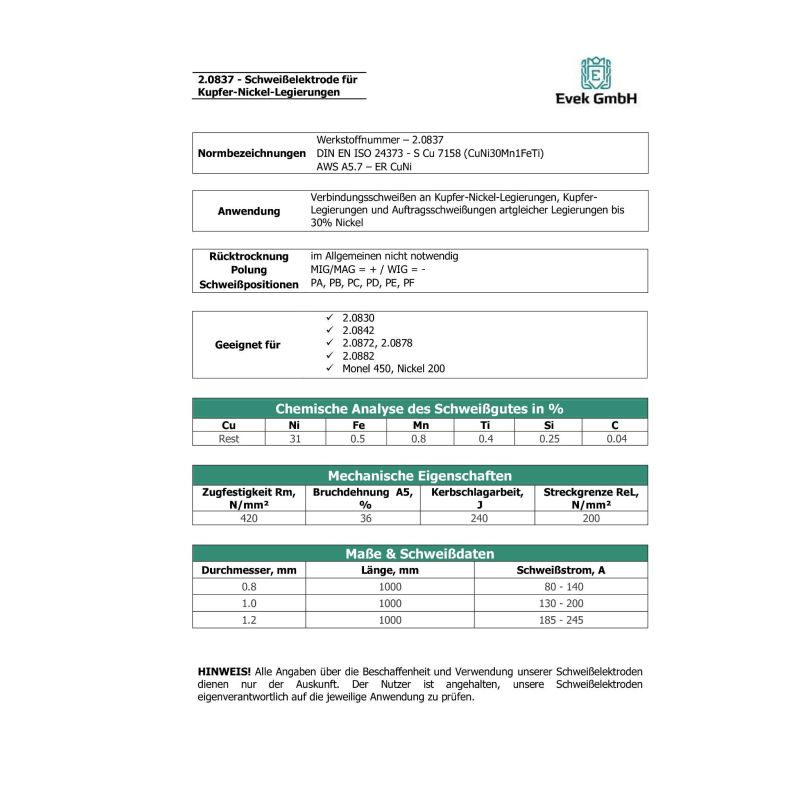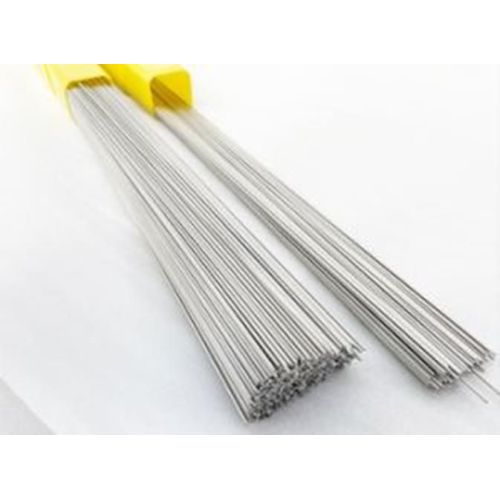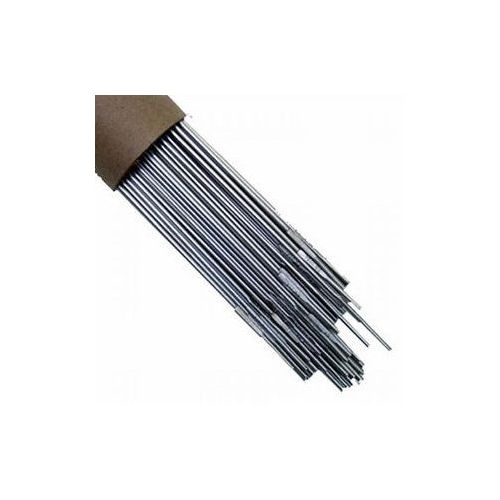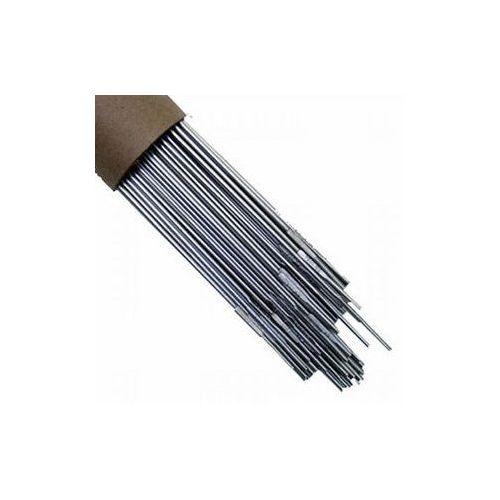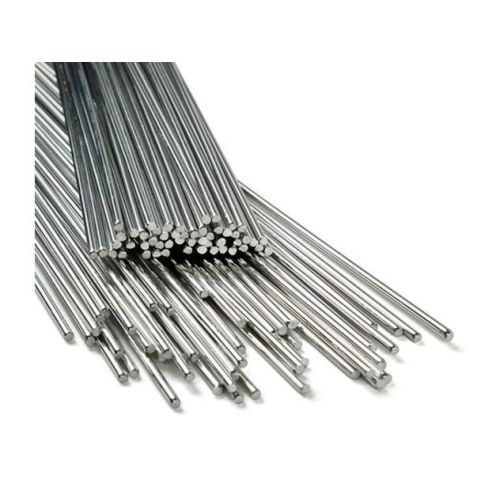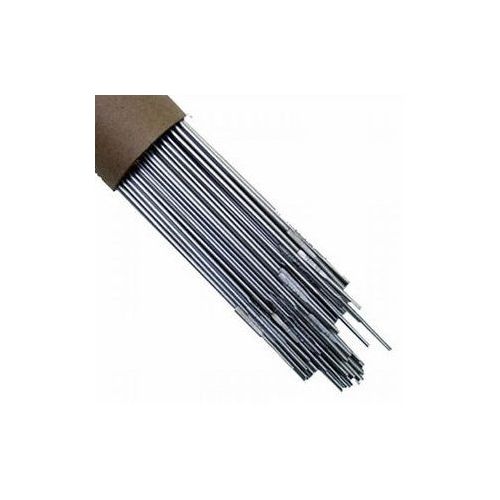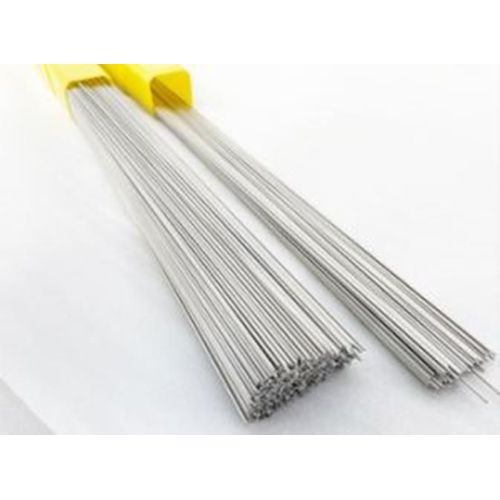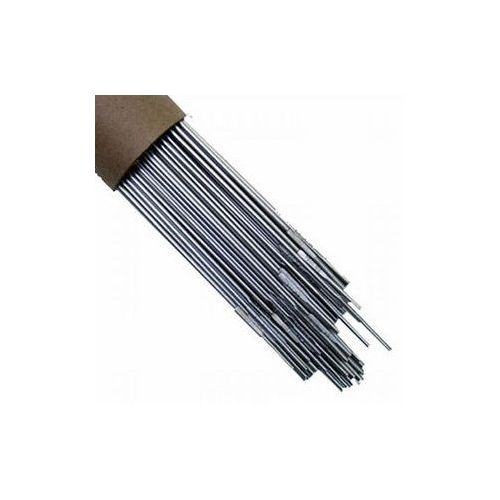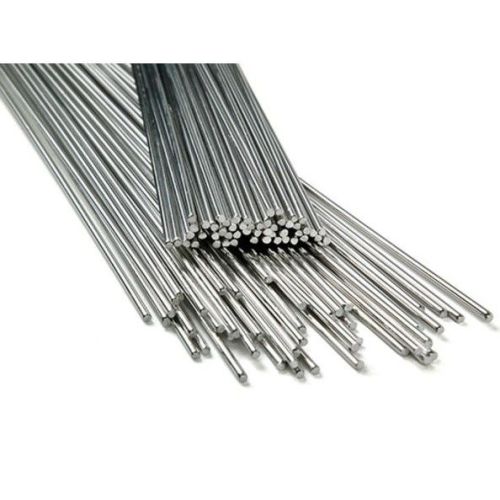Welding wire Monel® 67 Nickel 2.0837 Ø 1.6-3.2mm TIG TIG welding rods CuNi electrodes
- Do you need a different steel quality or dimension? Please write to us. Our sales team makes an offer from stock program or delivery program :)
- Area of application: Joint welding on copper-nickel alloys, copper alloys and build-up welding of similar alloys up to 30% nickel;
- Wnr. 2.0837; DIN EN ISO 24373: S Cu 7158 (CuNi30Mn1FeTi); AWS A5.7: ER CuNi
- Didn't find the sizes you wanted? Just contact us! We are happy to help you with your request.
Length tolerance +/-2mm
Do you need a different steel quality or dimension? Please write to us. Our sales team makes an offer from stock program or delivery program :)
2.0837 is a copper-nickel alloy filler metal with a nickel content of up to 30%. It is suitable for welded joints and deposits of similar Cu-Ni alloys up to 30% nickel. The 2.0837 welding wire has very good corrosion resistance, especially in seawater environments. Because of its excellent resistance to seawater, 2.0837 filler metal is in great demand in shipbuilding, marine engineering and the chemical industry.
The 2.0837 welding wire is available in the Evek GmbH online shop. We have a wide range of various welding filler materials at good prices.
The 2.0837 filler metal is suitable for joint welding on copper-nickel alloys, copper alloys and build-up welding of similar alloys up to 30% nickel. The most important base materials are:
- 2.0830;
- 2.0842;
- 2.0872, 2.0878;
- 2.0882;
- Monel 450, Nickel 200.
The 2.0837 welding wire has the following features:
- copper-based;
- very good resistance to corrosion and seawater;
- for welded joints and deposits of similar Cu-Ni alloys up to 30% nickel;
- for use in marine technology and in the chemical industry.
Buy the 2.0837 welding consumable through your reliable supplier Evek GmbH. We are always at your side with advice and action.
documentation
Data sheet (German)- Type
- Welding electrodes
- material
- Nickel alloy
- Alloy
- 67
- tensile strenght
- 420 N/mm²
- Stretch limit
- 200 N/mm²
- Elongation at break
- 36%

